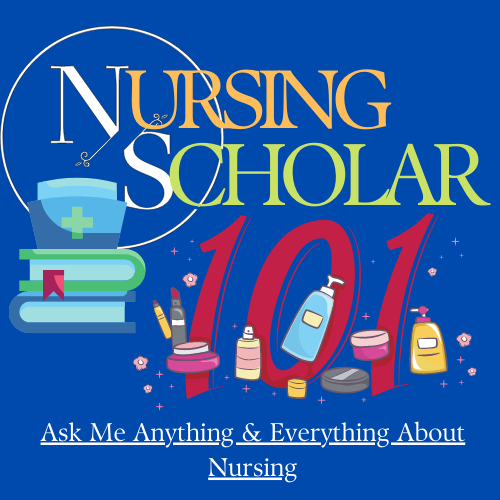FAQs: Comprehensive Guide to DSSSB Nursing Officer Exam
This comprehensive guide provides crucial insights into the DSSSB Nursing Officer exam, including detailed information on eligibility criteria, syllabus, salary, and the selection process. Discover how to prepare effectively with tips on understanding the exam pattern, accessing study materials, and navigating the application process. Whether you’re aiming to start or advance your career in nursing with DSSSB, this article offers all the essential details to help you succeed.
Frequently Asked Questions
1. What is the DSSSB Nursing Officer?
– The DSSSB Nursing Officer is a crucial role within the healthcare system, responsible for patient care, administering medications, and assisting in medical procedures to ensure the smooth operation of healthcare facilities.
2. What is the DSSSB Nursing Officer Syllabus?
– The syllabus for the DSSSB Nursing Officer exam covers topics such as General Nursing, Medical-Surgical Nursing, Obstetrics and Gynecology, Pediatric Nursing, and Community Health Nursing. This syllabus is designed to evaluate the comprehensive knowledge of candidates in the nursing field.
3. What is the DSSSB Nursing Officer Salary?
– A DSSSB Nursing Officer receives a competitive salary package ranging from INR 44,900 to INR 1,42,400 per month. This package includes various allowances such as Dearness Allowance (DA), House Rent Allowance (HRA), and other benefits.
4. What is the DSSSB Nursing Officer’s Cut-Off?
– The cut-off marks for the DSSSB Nursing Officer exam vary each year based on factors like the exam’s difficulty and the number of candidates. Understanding previous cut-off trends can help candidates set their target scores.
5. What are the DSSSB Nursing Officer Eligibility Criteria?
– To be eligible for the DSSSB Nursing Officer exam, candidates must be between 18 to 32 years of age, possess a Diploma or Degree in General Nursing and Midwifery (GNM), and be registered with the Indian Nursing Council or the State Nursing Council.
6. What qualifications are needed for a DSSSB Nursing Officer?
– The primary qualification for a DSSSB Nursing Officer is a Diploma or Degree in General Nursing and Midwifery (GNM). Having additional experience in the nursing field can give candidates an advantage in the selection process.
7. Where can I find the DSSSB Nursing Officer Notification?
– The official notification for the DSSSB Nursing Officer exam is published on the DSSSB’s official website. This notification includes details on exam dates, syllabus, eligibility criteria, and the application process.
8. What is the DSSSB Nursing Officer Selection Process?
– The selection process typically involves a written examination followed by a skill test and document verification. Candidates must successfully pass all stages to be considered for the position.
9. When is the DSSSB Nursing Officer Exam Date?
– Candidates should regularly check the official DSSSB website or trusted sources for updates on the exam date. The official notification will provide the exact timeline for the examination and other important events.
10. How do I get the DSSSB Nursing Officer Admit Card?
– The admit card for the DSSSB Nursing Officer exam is essential for attending the exam. Candidates can download it from the official DSSSB website once it is released.
This FAQ section provides a comprehensive guide for candidates preparing for the DSSSB Nursing Officer exam, addressing all critical aspects related to the role, exam, and preparation.
Here are additional FAQs to expand the guide:
11. What is the DSSSB Nursing Officer Exam Pattern?
– The DSSSB Nursing Officer exam typically includes multiple-choice questions (MCQs) covering topics like General Awareness, General Intelligence and Reasoning, Arithmetic and Numerical Ability, English Language, and Nursing-related subjects. Understanding the exam pattern helps candidates focus their preparation on key areas.
12. How can I apply for the DSSSB Nursing Officer Exam?
– Candidates can apply for the DSSSB Nursing Officer exam online through the official DSSSB website. The application process involves filling out an online form, uploading required documents, and paying the application fee.
13. What study materials are recommended for the DSSSB Nursing Officer Exam?
– Recommended study materials include previous year question papers, nursing textbooks covering the syllabus topics, online mock tests, and specific DSSSB Nursing Officer exam guides. Practicing with these resources can enhance your preparation.
14. What is the DSSSB Nursing Officer Age Limit?
– The age limit for the DSSSB Nursing Officer exam is generally between 18 to 32 years. However, age relaxations are applicable for candidates from reserved categories as per government norms.
15. Is there a negative marking in the DSSSB Nursing Officer Exam?
– Yes, the DSSSB Nursing Officer exam often includes negative markings. Typically, a certain fraction of marks is deducted for each incorrect answer, so it’s crucial to answer carefully.
16. What are the career prospects after becoming a DSSSB Nursing Officer?
– After becoming a DSSSB Nursing Officer, there are various opportunities for career advancement, including promotions to senior nursing positions, specialization in areas like critical care or pediatrics, and administrative roles within healthcare facilities.
17. How can I prepare for the DSSSB Nursing Officer Skill Test?
– To prepare for the skill test, candidates should practice nursing procedures, patient care techniques, and basic medical tasks. Familiarity with hospital equipment and patient management will be beneficial.
18. What documents are required for DSSSB Nursing Officer Document Verification?
– Documents typically required include your educational certificates (Diploma/Degree in GNM), registration with the Nursing Council, identity proof (like an Aadhaar card), caste certificate (if applicable), and other relevant documents specified in the notification.
19. How can I check my DSSSB Nursing Officer Exam Result?
– Candidates can check their exam results on the official DSSSB website. The results are usually published in PDF format, listing the roll numbers of successful candidates.
20. What is the process for downloading the DSSSB Nursing Officer Admit Card?
– To download the admit card, visit the DSSSB’s official website, enter your application number and date of birth/password, and download the admit card from the designated link.
21. What are the benefits of being a DSSSB Nursing Officer?
– Benefits include a stable government job with a competitive salary, health benefits, job security, opportunities for professional growth, and the satisfaction of contributing to public health.
22. Can I find previous DSSSB Nursing Officer Question Papers online?
– Yes, previous year question papers are often available online, either through the DSSSB’s official website or various educational portals. Practicing these papers can give you an insight into the exam pattern and types of questions asked.
23. How can I stay updated on the latest DSSSB Nursing Officer Notifications?
– To stay updated, regularly visit the official DSSSB website, subscribe to job notification portals, or follow social media pages that provide government job updates.
24. Are there any specific books for DSSSB Nursing Officer Exam Preparation?
– Yes, there are several books specifically tailored for the DSSSB Nursing Officer exam, covering the syllabus comprehensively. Some popular ones include exam guides by Arihant, RPH Editorial Board, and Upkar Prakashan.
25. What happens after clearing the DSSSB Nursing Officer Exam?
– After clearing the exam, successful candidates undergo a skill test and document verification. Upon passing all stages, they receive an appointment letter and begin their career as a DSSSB Nursing Officer in a designated healthcare facility.
This expanded FAQ section ensures a thorough understanding of all aspects of the DSSSB Nursing Officer exam and the role itself, providing a comprehensive resource for candidates.





